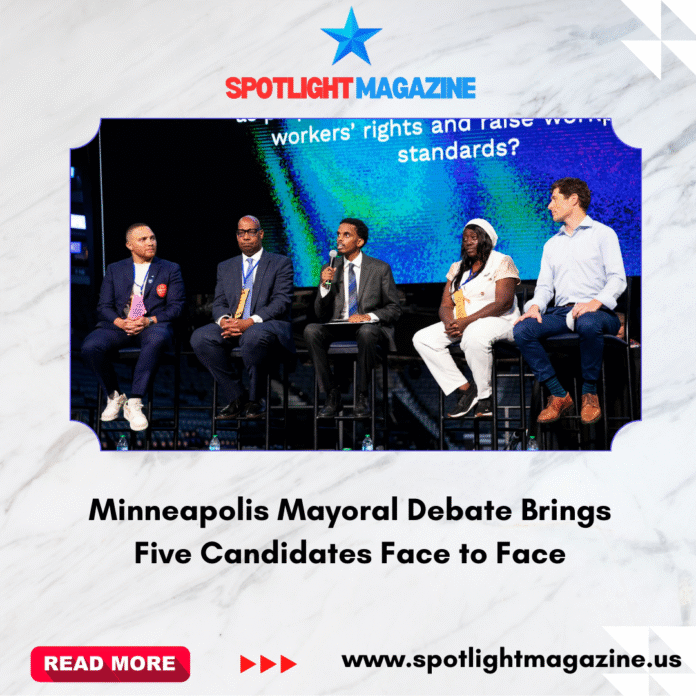The race for Minneapolis mayor is heating up, and voters will soon get a closer look at the five candidates hoping to lead the city. The Citizens League is hosting a debate at 8 a.m. on Friday, giving residents the chance to hear directly from those running for the city’s top job. Minnesota Public Radio News will stream the event live, with Twin Cities PBS anchor Mary Lahammer and WCCO host Blois Olson moderating the conversation.
This year’s election is set for November 4, and Minneapolis voters will once again use ranked-choice voting to select their next mayor. Early voting began on September 19, giving residents a head start in making their voices heard. Citizens League Executive Director Jake Loesch said the debate is an important opportunity, noting that what happens in Minneapolis has a ripple effect across Minnesota. He emphasized that voters deserve a chance to understand where the candidates stand on key issues and to hear their vision for the city’s future.
The debate will bring together a diverse group of candidates, each offering a different perspective shaped by their personal and professional experiences. Rev. DeWayne Davis is one of the contenders. He most recently served as lead minister at Plymouth Congregational Church before stepping down earlier this year. Davis also spent 15 years working as a congressional staffer and co-chaired Minneapolis’ Community Safety Working Group. His activism includes involvement in the Minnesota Poor People’s Campaign, showing his commitment to addressing inequality and community well-being.
Sen. Omar Fateh is also in the race. Since 2021, he has represented south Minneapolis in the state Legislature, where he’s built a reputation for pushing progressive policies. He was endorsed by the Democratic Socialists of America and has been instrumental in passing legislation to fund free college for low-income Minnesotans. He also sponsored a state law that created a minimum wage and worker protections for Uber and Lyft drivers, highlighting his focus on education and labor rights.
Mayor Jacob Frey is seeking a third term, which he has said will be his final one. Frey has led the city through some of its most challenging years, including the COVID-19 pandemic and the civil unrest after the murder of George Floyd. Before becoming mayor, Frey served as a city council member representing Ward 3 and worked as a civil rights and employment discrimination attorney. His campaign message centers on finishing the work he started, suggesting he sees this term as a chance to complete key initiatives already in motion.
Jazz Hampton, another candidate, brings a background in law and community safety innovation. He is an attorney and former public defender who co-founded TurnSignl, an app that provides real-time legal advice during traffic stops. Hampton launched the app in response to community concerns following George Floyd’s death. He has also served on several nonprofit boards, including Catholic Charities Twin Cities, the Great North Innocence Project, and the Minneapolis Foundation. His campaign is rooted in justice and fairness, aiming to bring both legal expertise and compassion into city leadership.
Rounding out the field is Brenda Short, a small business owner with a deeply personal connection to the city. Short grew up in rural Iowa before moving to Minneapolis, where she experienced homelessness while raising three children. She later became a homeowner and has used her experiences to advocate for unhoused neighbors. Her campaign is focused on ensuring Minneapolis is affordable for everyone, with housing access and economic opportunity at the heart of her message.
Together, these five candidates represent a wide spectrum of ideas and priorities for the future of Minneapolis. From community safety to housing affordability, education, labor rights, and civil rights, the debate will likely touch on issues that affect every resident of the city. With early voting already underway, the Citizens League debate will be one of the first major chances for voters to directly compare the candidates and their visions. As Minneapolis prepares for this critical election, the discussion promises to be both robust and informative, offering insight into what the next four years could hold for the city.


